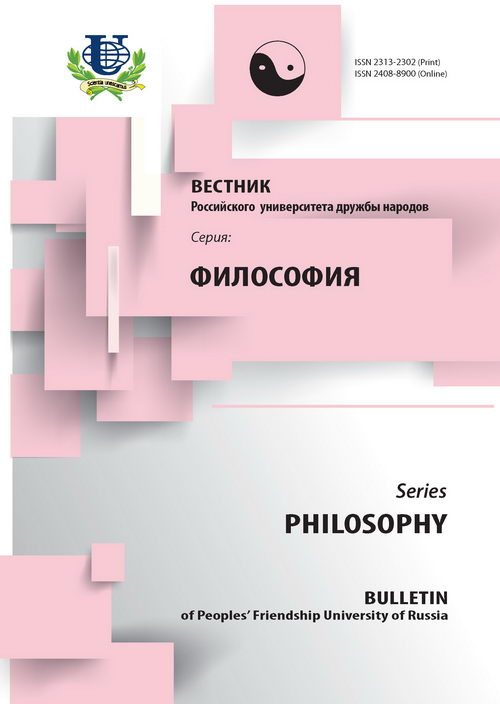Thinking in Complexity: Philosophical Strategies of Gilles Deleuze and Felix Guattari
- Authors: Svirskiy Y.J.1
-
Affiliations:
- Institute of Philosophy
- Issue: No 1 (2012)
- Pages: 37-47
- Section: Articles
- URL: https://journals.rudn.ru/philosophy/article/view/11285
Cite item
Full Text
Abstract
The paper considers the possibility of constructive interpretation of paradigmal shift affecting now our ideas, values, organization of body and perception of the world. Such shift is largely stimulated by the advances of modern technology, especially in the field of nanotechnology and NBIC-convergence. It is here, in our opinion, the term complexity is appropriate (as opposed to complexness). This term speaks not only about compound nature of certain entities (in the Cartesian sense), but about a special style of thinking. Complexity is not determined by composition of the given object, but by a special way of grasping dynamics, which increasingly evident penetrates all the pores of social life as well as mental or physical existence of man. To grasp this complexity specific philosophical approaches are required - approaches aimed not only to explain the situation of affairs, but also to provide a conceptual life in the new reality. As one of the options for such a conceptual approach - in the article - we discuss the philosophical technology proposed by Gilles Deleuze and Felix Guattari in Thousand Plateaus (the second volume of Capitalism and Schizophrenia).
Keywords
About the authors
Ya Jo Svirskiy
Institute of Philosophy
Email: svirskhome@yandex.ru
Институт философии РАН; Institute of Philosophy
References
















